Our people are pivotal to all the initiatives that drive us to realising our future vision. With a dedicated focus on cost efficiency, at Tata Motors, we are providing our employees the right opportunities to increase productivity, improve processes, develop future leaders and turn a higher profit. We are also driving an organisation-wide culture of innovation.

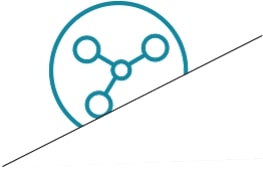
Strengthening the talent pipeline
A high-quality talent pipeline enables the organisation to bring operational excellence across the board.
TML partners with premier technology institutions to develop technical talent at multiple levels in the organisation. ‘T-talk’ is an initiative in which TML employees interact with the student community about the industry and areas of learning. TML’s employer brand-building programme, titled Mind Rover, engages with students through a case study competition that invites solutions to challenging real-world problems that the Company currently faces or has faced in the past. TML also invites eminent faculty members from various institutes to participate in its research programmes. TML’s ‘Talent on Demand’ initiative is a pull-based strategy where employees, particularly from the departments with high attrition, are trained to build talent pipelines on demand..
JLR is driven by passionate people who design, develop and manufacture cars that their customers love. The Company’s long-term success relies on attracting and nurturing the next generation of bright minds. To inspire and attract a diverse range of talent, JLR is investing in innovative recruitment strategies.
The Company found 15 new engineers through Tech Quest, an online game that tests abilities through puzzles and coding challenges. 5% of JLR’s September 2017 apprentices were recruited through its Gorillaz programme. This was an app-based code-breaking challenge with the best-performing candidates fast tracked through the recruitment process.


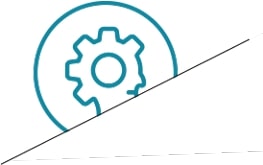
Accelerating changes with engagement
At Tata Motors, we constantly engage our employees on a multitude of programmes for improving their work efficiency and build on their collective skills and intelligence.
TML initiated the Organisation Effectiveness (OE) project to create a leaner organisation and enhance process efficiencies. Town Halls are conducted every quarter by the Executive Committee (ExCom) at different locations to update the Company on business and OE exercise. After each Town Hall, group discussions are held between the ExCom and employees. TML instituted a robust performance management methodology i.e. Balanced Scorecard to measure both organisational and employee performance. This has enabled it to positively impact the overall employee lifecycle, including assessment, compensation and rewards management. Additionally, TML re-engineered its processes to further sharpen its operational efficiencies. This initiative has yielded multiple benefits, which include organisational agility, process orientation, standardised decision making and streamlined governance.
52% Of permanent unionised workforce with which the management engages frequently
TML is one of the first Tata group companies to launch a long-term ESOP. The underlying intent of launching the ESOP was:
→To drive ongoing commitment towards the Relationship with Supply Chain Partners 2.0 strategy and to ensure that TML achieves consistent, competitive and cash-accretive growth over the medium-to-long
→To channelise management focus on sales enhancement, rigorous cost reduction, supply de bottlenecking and timely product launches, which will lead to market share enhancement and bottom-line growth
→To ring fence the TML leadership team, it motivates and selects high-potential employees, ensuring to create an ownership mindset that is aligned to the interests of shareholders
JLR is a lead partner in the £150 Million National
Automotive Innovation Centre (NAIC) venture, which
will open at the University of Warwick towards the end
of 2018. A state-of-the-art research and collaboration
hub for emerging automotive technologies, the NAIC will
develop the talent and skills needed for the future of the UK
automotive industry.


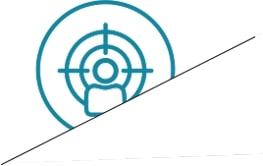
Upskilling to drive product leadership
TML built capacities across management tiers through
different modules as well as learning academies
that offer training programmes on knowledge and
capability enhancement, management development and
fundamental skills development. With digital and online
skills assessment, the Company identifies the learning
priorities of each individual employee, with customised
exercises and course content. By enhancing the skills of
its employees on future technologies, TML is ensuring a
smoother organisation-wide transition towards adoption
of newer technologies and development of
new products.

JLR is in a unique position to answer the industry’s insatiable call for a wide range of skills. The Company is investing more than £100 Million per year in the Jaguar Land Rover Academy, offering lifelong learning for employees. Around a quarter of employees are actively working towards a formal academic or professional qualification at all levels, from apprenticeship to doctorate. They have also upskilled 7,000 engineers with Master’s level education since 2010.


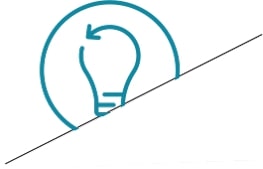
Providing a safe work environment
For TML, workforce safety is of top priority and the Company undertakes multiple initiatives across different levels of the organisation to implement a culture of wellbeing.
Initiatives such as safety drills and trainings, contractor safety management prior to awarding contracts, audits and rewards and recognitions on safety ensure better work efficiency, increased value and better service delivery to clients. For TML’s white-collared employees, the Company engages in continuous communication and awareness drill on lifestyle/wellness and health promotional activities. TML has also broadened its scope of safety awareness, building campaigns (such as road safety week and national safety month, among others) for engaging its channel partners and supplier fraternity as well.
1,565 Female employees trained in safety
TML’s Lost Time Injury Frequency rate (LTIFR) has improved from 0.17 to 0.08 – an overall reduction of 52.9% compared to its FY17 safety performance.
At JLR, efforts are made to continuously improve the working conditions and promote safe working practices to ensure the safety and wellbeing of its employees and the wider communities the Company engages with. Workplace safety is an intrinsic part of working at JLR. It is key to ensuring the on-going success of the business and to support JLR’s journey to zero harm.
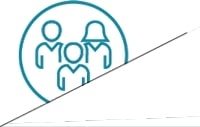
A diverse workforce
TML believes that with diversity and inclusion on the shop floor, it can leverage the multiplicity of skillsets needed in all its operations. The Company has established policies and integrated capacity-building systems for providing a supportive work environment, especially for its female employees as well as employees from different backgrounds and ethnicities. The Company recruits trainees from villages and small towns, especially from economically disadvantaged regions. Its ‘GearUp’ initiative for mid-level women managers is designed to provide management development inputs focussed on leadership skills enhancement. TML has in place a programme for the employment of returning mothers. Its comprehensive Human Resource (HR) policy framework, including maternity leave, sabbatical and half-day-half-pay policy and flexible timings, helps employees establish a work-life balance.
For TML:
- 3% of TML workforce is women
- 100% Assembly line manufactured by women in Pune and JSR
JLR encourages its women employees across the organisation in different types of roles and responsibilities. The Company is changing the convention and reaching out to millions of young women to attract them to a career in engineering and design. Some of the programmes for the female employees at JLR include Top Flight and Leadership Summit programmes to prepare the brightest and best female employees for the highest leadership roles, in addition to providing flexible working hours, on-site childcare and a 52-week, fully paid maternity leave.
There has been a 24% increase in the proportion of women in the Company’s workforce since 2014 and a 21% increase in the proportion of women in its management grades in the same period. In 2017, JLR recruited more women than men (55% female) for its Advanced Apprentice programme. Women also comprised 29% of the total hires joining the graduation programme, in the year.
For JLR:
- 4.5% Mean Pay Gap
The mean pay gap tells us the difference in the average hourly pay rate for men and women.

